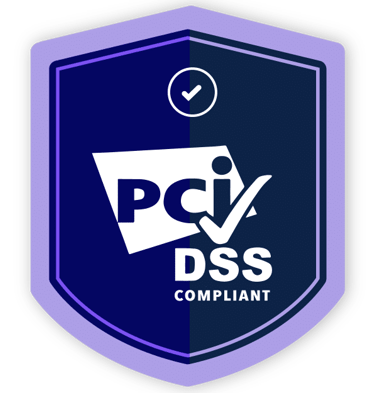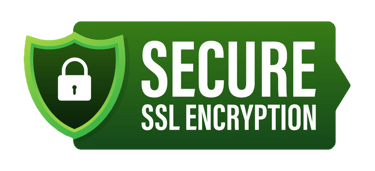Employee Training Requirements Under the Updated CoPs
Comprehensive guide on employee training requirements under the updated Home Health Medicare Conditions of Participation (CoPs), ensuring compliance, patient safety.
The Medicare Conditions of Participation (CoPs) serve as the regulatory backbone for all certified home health agencies across the United States. As of the latest updates, the Centers for Medicare & Medicaid Services (CMS) have reinforced the importance of ongoing employee training and competency validation as essential components of compliance, patient safety, and quality improvement. Home health agencies must not only provide care aligned with individualized patient needs but also demonstrate that every member of their workforce—clinical and non-clinical—possesses the knowledge, skills, and abilities to perform their duties safely and effectively.
This article explores the employee training requirements under the updated CoPs, detailing expectations for initial orientation, ongoing education, annual competency evaluations, and specialized training areas that support compliance with §484.75 (Skilled Services), §484.100 (Compliance with Federal, State, and Local Laws), and §484.65 (QAPI Program).
1. Foundation of Training in the Updated CoPs
The updated CoPs emphasize a competency-based approach to training, moving away from checklists toward performance validation. CMS expects agencies to verify that staff members can apply their training in practice—not simply attend educational sessions.
Under §484.75(b), the CoPs require agencies to ensure that all personnel furnish services safely and effectively, consistent with accepted professional standards. This means agencies must document that every employee has received adequate orientation, in-service education, and ongoing competency training specific to their role.
Training programs must therefore address:
The agency’s policies, procedures, and mission.
The principles of patient-centered and culturally competent care.
Infection control and emergency preparedness.
Privacy and HIPAA compliance.
Incident reporting and patient rights protections.
2. Orientation: The First Step Toward Compliance
A comprehensive orientation program is the foundation of compliance for all newly hired employees, contractors, and volunteers. It sets the tone for regulatory adherence and safe service delivery.
Orientation Should Include:
Overview of the agency’s scope of services and service area.
Understanding of the Home Health CoPs and how they shape daily practice.
Emergency preparedness procedures as required under Appendix Z.
Roles and responsibilities within the interdisciplinary team.
Reporting structures and documentation requirements.
Familiarity with the agency’s Quality Assurance and Performance Improvement (QAPI) goals.
Agencies must retain signed acknowledgment forms in each employee file, demonstrating that the orientation was completed and understood.
3. Ongoing Education: Building a Culture of Competence
The CoPs make it clear that compliance is not a one-time task—it is a continuous process. Home health agencies must provide ongoing education throughout the year to ensure all staff remain current with regulatory updates, clinical standards, and best practices.
Required Annual Topics Often Include:
Infection control and standard precautions.
Bloodborne pathogen exposure prevention.
HIPAA and patient confidentiality.
Fall prevention and safety protocols.
Patient abuse, neglect, and exploitation prevention.
Emergency preparedness drills and communication procedures.
The QAPI program often identifies education-based performance gaps, requiring targeted training interventions. These should be documented, evaluated for effectiveness, and incorporated into the agency’s QAPI quarterly reports under §484.65.
4. Competency Evaluation and Validation
Competency assessments ensure that staff not only attend training but also demonstrate the ability to perform assigned duties correctly. Under the updated CoPs, competency evaluation must be:
Objective (based on measurable criteria);
Role-specific (tailored to RN, LVN/LPN, PT, OT, HHA, or administrative staff);
Documented (retained in the personnel file as evidence of compliance).
Competency validation methods may include:
Skills demonstrations and return demonstrations.
Direct observation during patient visits.
Written tests or case-based scenarios.
Simulation-based evaluations.
Peer reviews or supervisor evaluations.
For home health aides, the requirements are particularly specific under §484.80, which mandates that aides demonstrate competency in personal care, infection control, and basic restorative services. Aide competency evaluations must be conducted by a registered nurse (RN) or qualified professional and documented on the aide’s competency checklist.
5. Specialized Training Areas
The updated CoPs require home health agencies to incorporate specialized training for staff working in areas with increased risk or regulatory focus.
a. Emergency Preparedness Training (§484.102)
All staff must be trained annually on the agency’s emergency preparedness plan. Training should include:
Disaster communication protocols.
Evacuation and shelter-in-place procedures.
Coordination with local emergency authorities.
Participation in at least one annual emergency drill and after-action review.
b. Infection Prevention and Control (§484.70)
CMS expects agencies to maintain a robust infection control program integrated into QAPI. Staff must receive training on:
Transmission-based precautions.
Hand hygiene and PPE use.
Cleaning, disinfection, and waste disposal.
Identifying and reporting outbreaks.
c. Patient Rights and Ethics (§484.50)
Every employee must understand the patient’s rights, including:
Freedom from abuse and neglect.
Rights to privacy and informed decision-making.
Complaint process and non-retaliation policies.
Training ensures that all interactions uphold patient dignity and regulatory protections.
6. Documentation of Training: The Surveyor’s Lens
During CMS or state surveys, training records are among the first documents requested. Surveyors verify that agencies maintain comprehensive documentation showing compliance with all education and competency requirements.
Documentation Should Include:
Orientation sign-in sheets.
Annual training logs.
Competency evaluation forms.
Attendance rosters for in-services and drills.
Records of corrective action training following incidents or QAPI findings.
Surveyors cross-check staff files against training logs to ensure all active employees meet competency requirements. Failure to produce complete documentation may result in deficiencies under §484.75, §484.80, or §484.100, impacting the agency’s compliance status and Medicare certification.
7. Role of Leadership in Training Compliance
The Administrator and Director of Patient Care Services (DPCS) hold primary responsibility for ensuring staff competency and training. Their roles include:
Establishing and updating training policies and schedules.
Reviewing regulatory updates and integrating them into education plans.
Overseeing competency assessments and retraining when needed.
Ensuring that QAPI findings inform staff education programs.
In smaller agencies, leadership may partner with external consultants to manage compliance-related education and ensure that programs align with CMS standards.
8. Integration with the QAPI Program
The Quality Assurance and Performance Improvement (QAPI) program is directly tied to staff education. Under §484.65, agencies must use QAPI data to identify areas where education is necessary to improve outcomes or compliance.
Examples include:
Increased infection rates leading to refresher infection control training.
Recurrent documentation errors prompting EMR training sessions.
Patient satisfaction feedback driving communication workshops.
Education-driven QAPI interventions must be documented, measured for impact, and reviewed during quarterly Governing Body meetings.
9. Leveraging Technology for Training Efficiency
Modern home health agencies are turning to digital learning platforms and compliance management software to track education and competency completion. Electronic systems streamline:
Scheduling and tracking of required courses.
Maintaining digital certificates and staff records.
Generating compliance reports for survey readiness.
Providing role-based learning modules accessible remotely.
These tools reduce administrative burden while ensuring that no training requirement is overlooked.
10. Consequences of Non-Compliance
Failure to meet employee training requirements can result in serious deficiencies during CMS or state surveys. Common citations include:
Incomplete or missing competency documentation.
Failure to conduct annual emergency preparedness drills.
Inadequate infection control education.
Untrained staff performing patient care tasks.
Deficiencies in training often lead to corrective action plans (CAPs), re-education mandates, or even condition-level deficiencies, potentially jeopardizing the agency’s Medicare certification.
11. Building a Sustainable Compliance Culture
Sustaining compliance requires moving beyond mandatory education toward a culture of continuous improvement. Agencies that promote learning as an integral part of care delivery experience higher staff engagement, fewer citations, and improved patient outcomes.
Best Practices Include:
Incorporating real-case reviews into training.
Encouraging staff feedback on educational effectiveness.
Recognizing and rewarding compliance excellence.
Aligning training goals with QAPI and performance metrics.
Conclusion: Partnering for Compliance Success
Maintaining compliance with employee training requirements under the updated CoPs is essential for both regulatory survival and quality patient care. Every agency must ensure that training programs are current, documented, and competency-based, reinforcing staff proficiency across all disciplines.
For agencies seeking expert guidance, HealthBridge offers comprehensive consulting and management solutions tailored to home health and hospice operations. From policy development and QAPI integration to mock surveys and employee training program design, HealthBridge ensures that your agency meets—and exceeds—the expectations of the Medicare Conditions of Participation.





